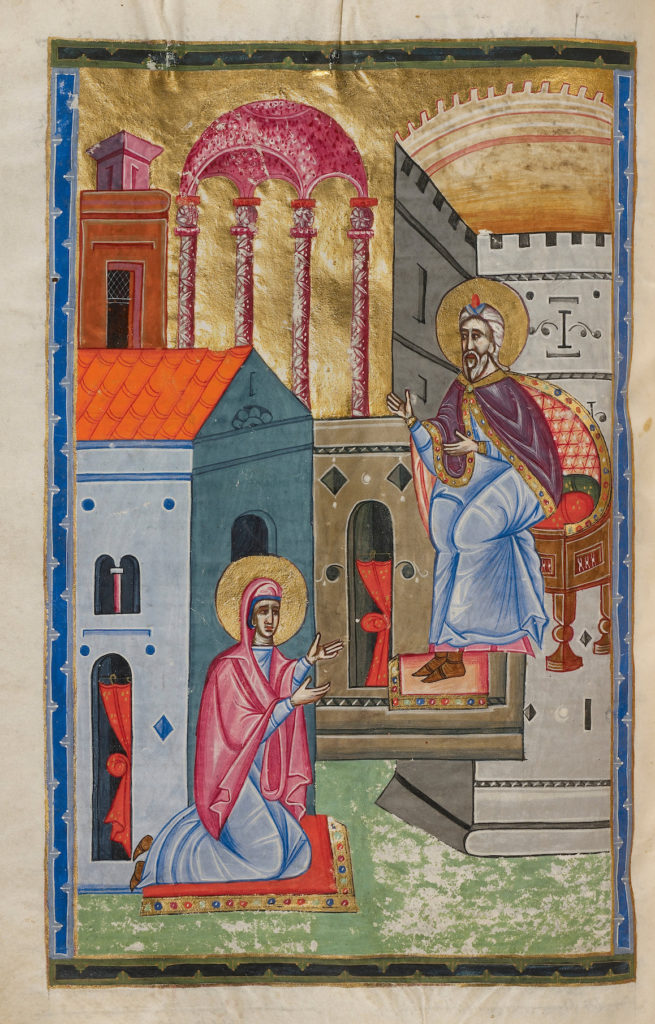Reading Hannah’s Prayer as One Who is Full
Few verses of the Bible should be more frightening to someone of my position than that of 1 Samuel 2:5, in which Hannah proclaims, “Those who were full have hired themselves out for bread, but those who were hungry are fat with spoil. The barren has borne seven, but she who has many children is forlorn.”
In fact, these verses are echoed in Mary’s Magnificat found in Luke 1:46-55, and indeed throughout Luke’s gospel. Time and again in Luke’s narrative, Jesus surprises his audiences by proclaiming God’s favor on those who had otherwise been ignored or swept to the margins.
Here in the story of Hannah, we see how this God who performs the great reversal on the worldly fate of us creatures has been doing so not just since Jesus’ time, but since the early days of Jewish history. And try as I might to convince myself otherwise, I know that I am one who Hannah describes as “full.”
As a middle-class American with only first-world problems to worry about, my needs are met. I have a home I love, I never have to worry about whether I can afford the next grocery bill, and I have a steady source of income that provides me a great sense of security about the future. I. Enjoy good health and consistent livelihood.
None of what I enjoy is evil. But according to Hannah’s prayer, I fit squarely within the category of those who are satiated, who have everything they need, and whose fate God threatens to reverse. And the thought of losing everything – my house, my spouse, my family, my job, my friends, my social safety network, my healthcare – is more than I can comprehend.
Still, I know that there are people in Hannah’s position, who live this reality every day. For people in situations more dire than I am familiar with, reading Hannah’s fervent prayer is not abstract, but concrete and real. God’s promise to reverse fates is not scary to them, but a beacon of hope, a morsel of grace that gives them strength to continue on where the world gives them so little reason to believe.
For me, when I read fervent prayers in the Bible (of which there are many), I know that this is not my story. While there are many stories in the Bible to which I relate personally, I also know that there are many stories which, though I understand and am profoundly transformed by their witness, I also know to be written by and about and for people who are not as “full” as I am. That’s not to say that I will never feel like Hannah in my life; I’m sure I will experience times that I will find myself in greater need than I am now. However, what it does mean is that my response to this passage of scripture must be fundamentally different from that of someone who is not “full,” but rather hungry.
The great promise of Hannah’s prayer is that God “will guard the feet of his faithful ones, but the wicked shall be cut off in darkness.” It is already clear, throughout scripture, that God is on the side of those in need, who are hungry, thirsty, imprisoned, or oppressed. To people who find themselves feeling any of the above, this prayer is nothing but comfort. But for people like me who are experiencing none of the above, what remains is for us to get on God’s side. If God is on the side of the oppressed, then it is up to those of us who are not oppressed to get ourselves over to God’s side, which is always that of the oppressed.
I already have enough; so what can I do to serve those who do not, so that I can be faithful to God? That is the question that rises for me, as a person who is “full,” when reading Hannah’s powerful prayer.

